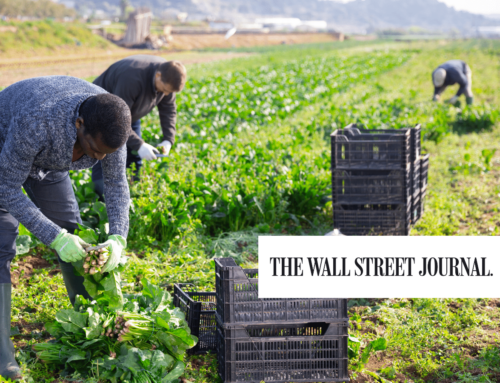Starting the fiscal year off with a bang, the U.S. Department of Agriculture (USDA) “resolved” a trade dispute with the touch and feel only a Washington insider can love. In order to keep Brazil from exercising its authority to levy trade sanctions stemming from a decades-old dispute on cotton subsidies, U.S. taxpayers will pay Brazilian cotton growers $300 million. This deal epitomizes what’s wrong with our complicated agricultural subsidy system.
While in the U.S. king cotton has lost some ground to more profitable and easier-to-grow crops, it still reigns supreme in the agricultural welfare kingdom. For decades cotton growers, and even those that simply owned land that once grew cotton, received billions in direct payments whether they grew a crop or not. Cotton growers have their own special marketing loans, trade promotion programs, and highly subsidized crop insurance. All of this has made cotton one of the most highly subsidized crops in the U.S.
In 2002 Brazil brought, and won, a World Trade Organization (WTO) case claiming certain U.S. subsidies for cotton were trade distorting. Brazil was granted the right to retaliate with restrictions and tariffs on U.S. products. Typically these take the form of asymmetrical warfare and are slapped on intellectual property and other high value goods – not agriculture products. But before Brazil took the final steps in imposing its counter-measures, in 2011, USDA and the House and Senate Agriculture Committees offered to bribe – err, pay Brazilian farmers $147 million as long as Brazil held off on enforcing the WTO action. Oh, and this check would come annually until, USDA promised, they “fixed” the issue in the next farm bill. In other words, federal taxpayers subsidize Brazilian cotton farmers so we can continue subsidizing U.S. cotton farmers.
Congress and the Administration failed to keep their word to the Brazilians in the farm bill that passed earlier this year. So now the two countries announced terms of a new deal to once again continue the subsidy scheme. The U.S. will pay a $300 million lump sum and make some other minor changes in cotton subsidy programs in exchange for Brazil not pursuing its case or challenging the shiny new Stacked Income Protection Plan (STAX) (a new entitlement program designed to put taxpayers on the hook for guaranteeing agribusiness income) created in the 2014 farm bill.
But this new agreement doesn’t solve anything. The only reason any deal has to be struck with Brazil is so that we can continue subsidizing domestic cotton producers. Lawmakers bent over backwards creating a new income entitlement just for cotton producers. They have a brand new “shallow loss” program that churns out checks when annual revenue dips as little as ten percent from an expected level. And nobody else growing any other crops can apply. Taxpayers cover 80 percent of the premiums for this so-called insurance, and 100 percent of the payouts of this program now projected to cost taxpayers at least $3.3 billion over the next ten years. And by the way, cotton lobbyists also convinced Congress to continue the outdated direct payment program – just for cotton – until STAX is implemented, resulting in another $558 million cost in FY15. So, USDA is asking taxpayers to fork over $300 million in order to squander nearly $4 billion on cotton farmers. While we’re not rocket scientists, we do know how to count and this is a lose-lose for taxpayers.
Furthermore, Brazil isn’t the only country that could conceivably challenge U.S. subsidies. Any other country with a significant cotton industry, say India, could bring a similar challenge. And it’s not limited to cotton. The nearly trillion dollar farm bill passed into law this spring creates new subsidy programs for dozens of crops from corn and soybeans to chickpeas and mustard seeds. This is on top of the billions we spend each year subsidizing crop insurance policies for 130 different crops, still more shallow loss programs, government-set price supports, marketing loans, quotas, import restrictions, and sweetheart deals for sugar.
Only in Washington can an agreement to bribe foreign farmers so we can continue plowing cash to domestic special interests be touted a success. Lawmakers should scuttle this “deal” and end king cotton’s fiscally tyrannical rule.











Get Social